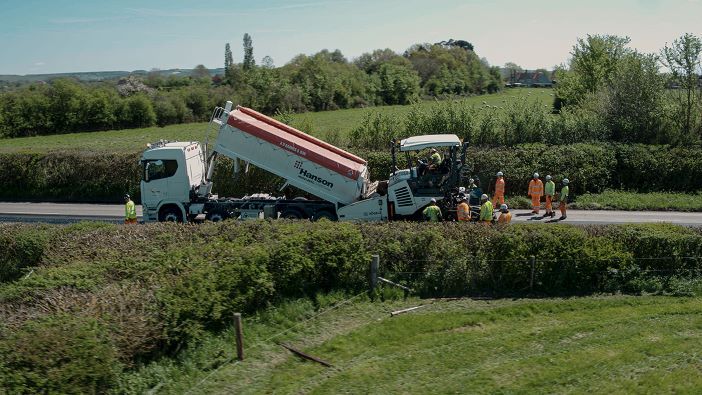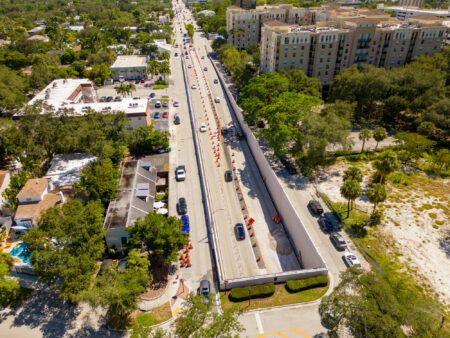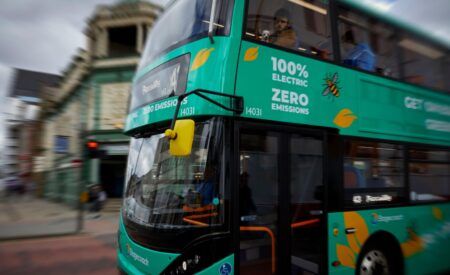Hanson Contracting has used a new reduced carbon asphalt to resurface a road in Dorset, UK, as the building materials company explores ways of helping to meet net zero carbon ambitions.
The trial has been completed through the Dorset Highways Strategic Partnership, an ongoing agreement with Dorset Council which facilitates innovation and collaboration.
Hanson combined its ERA warm mix asphalt with Shell Bitumen CarbonSink binder, which contains biogenic material that absorbs and stores CO2 throughout its lifecycle, to resurface the B3091 in Shaftesbury. The Duralayer Bio is manufactured at a lower temperature than standard hot mix asphalt, reducing energy requirements and carbon emissions. Biogenic materials within the binder lock in six tonnes of CO2 in every kilometre of road, cutting emissions further. As a result, the product provides at least a 25% reduction in carbon emissions compared with standard hot mix asphalt.
The low void, high bitumen content of the asphalt, coupled with the lower production temperatures, creates a very durable material – one which can also be laid as a single layer product, increasing efficiency and reducing disruption for road users.
“Hanson’s route to decarbonisation has been ongoing for many years and we have a plan in place to reach our ambition of being net zero by 2050,” says Gareth Cooksley, regional manager of Hanson Contracting. “Asphalt has an important part to play in this, including looking at areas like plant efficiency, the use of alternative fuels, switching to electric vehicles and, of course, low carbon asphalt products.”
Image: Hanson Contracting.





